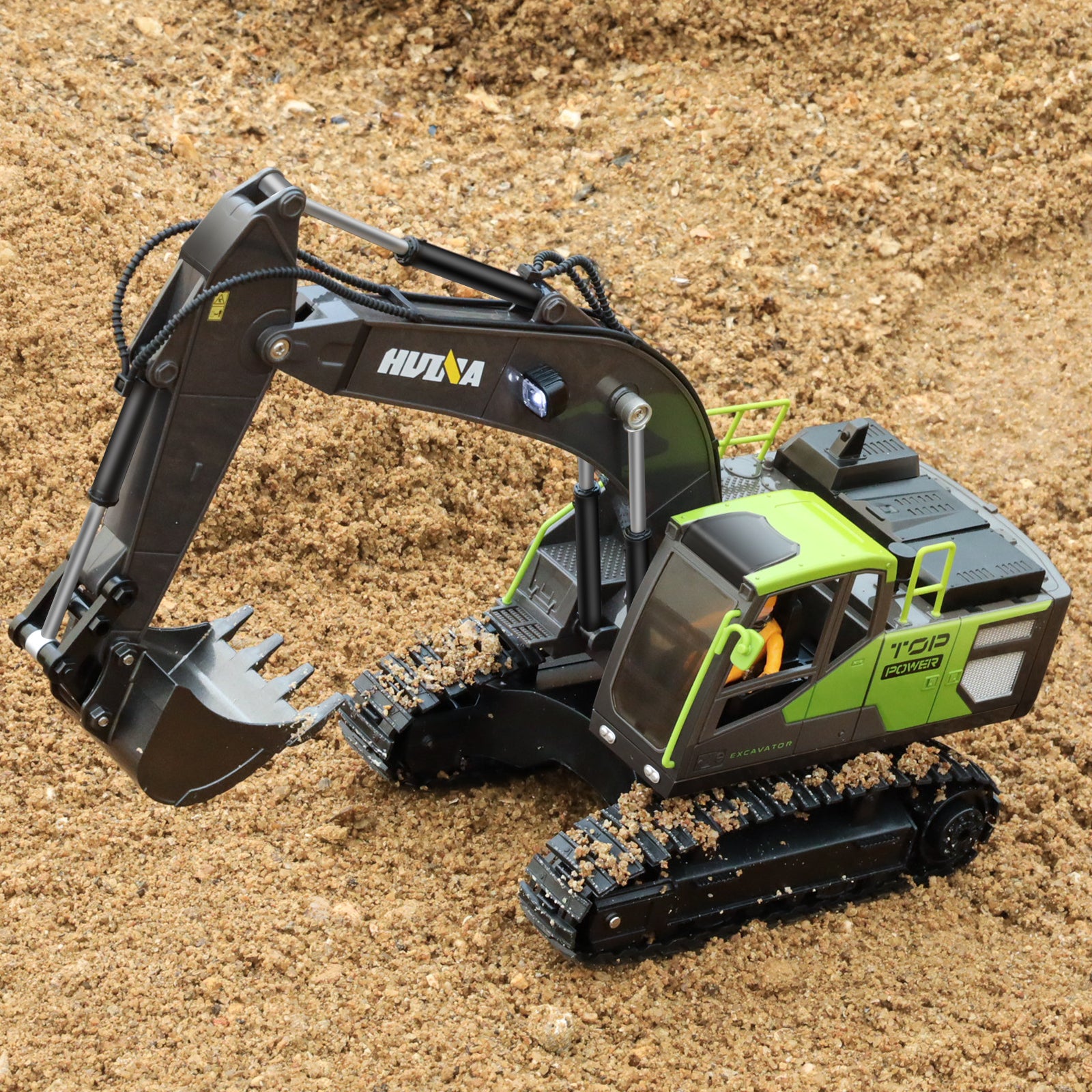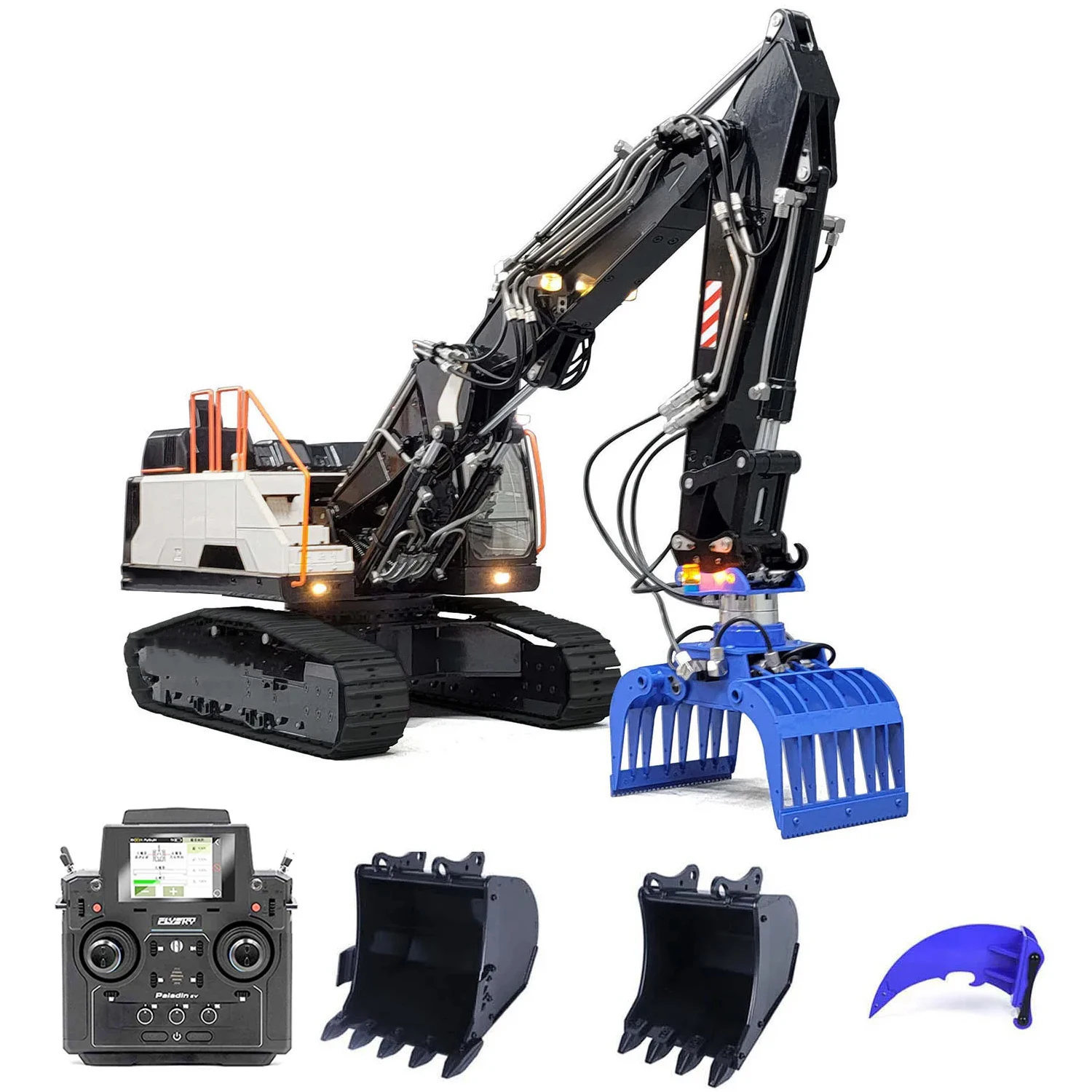Understanding Exactly How Excavator Functions and Its Influence on Performance
Excavators play a crucial function in building and construction and mining procedures, counting on a complex interaction of hydraulic and mechanical systems. Their capability to do a range of jobs rests on both their layout and the innovation incorporated within. Recognizing these components can significantly influence operational effectiveness and productivity. As improvements proceed to improve the sector, one have to take into consideration just how these adjustments will influence future methods and performance.
The Essentials of Excavator Mechanics

The Role of Hydraulic Systems in Excavators
At the heart of excavator procedure exists the hydraulic system, which plays a critical function in powering the machine's movements and features. This system makes use of pressurized hydraulic liquid to transfer energy, making it possible for various activities such as training, digging, and swinging. By using the concepts of hydraulics, excavators can do tasks with impressive precision and force, boosting overall operational efficiency.The hydraulic system includes key elements, including valves, cyndrical tubes, and pumps, which collaborate to control the flow and instructions of the liquid. When the driver involves the controls, the hydraulic liquid is routed to certain cyndrical tubes, translating the operator's commands into physical movement. This device permits smooth and responsive activities, which are necessary in building and excavation environments. double e volvo rc excavator. The efficiency of the hydraulic system directly influences the performance and convenience of the excavator, making it an indispensable element in modern-day excavation procedures
Secret Components of an Excavator
Comprehending the vital components of an excavator is crucial for grasping exactly how this effective machine operates. An excavator contains numerous significant elements, consisting of the undercarriage, house, boom, pail, and arm. The undercarriage supplies security and mobility, commonly featuring tracks or wheels to browse various surfaces. Your home contains the engine and hydraulic systems, permitting the driver to regulate activity and power the machine. The boom extends from your house, enabling vertical reach, while the arm attaches to the pail, facilitating digging and lifting operations.Additionally, the taxi houses the operator, equipped with controls for specific maneuvering. Each of these components plays a crucial duty in the excavator's general functionality, contributing to its effectiveness and performance on building and construction websites. Comprehending these parts assists in maximizing and keeping excavator performance, making sure tasks are finished securely and properly.
Accessory Versatility and Its Advantages
Accessory flexibility is a necessary element of excavators, enabling operators to switch over between numerous tools customized for specific tasks. This flexibility not only improves task effectiveness but likewise adds to cost-effectiveness by minimizing the need for several devices. Understanding the different kinds of attachments readily available can significantly influence the overall efficiency and capability of an excavator on work sites.
Kinds of Attachments
While excavators are mainly identified for their digging capabilities, their true adaptability exists in the wide array of attachments available. These accessories enhance the excavator's capability, enabling it to execute various jobs beyond excavation. Common add-ons include pails (for digging and scooping), hydraulic thumbs (for realizing products), and augers (for drilling holes) Grapples are utilized for dealing with and relocating debris, while rippers can damage up tough surface areas. Various other specialized add-ons, such as plates and rakes, enable excavators to adjust to particular job demands. This variety not just raises the maker's utility throughout different sectors, including building, demolition, and landscape design, yet additionally permits drivers to customize their tools to meet certain task needs successfully.
Boosted Task Performance
Taking full advantage of work performance is a key advantage of utilizing various excavator accessories. Different add-ons allow an excavator to do numerous jobs without needing to switch over tools, saving important time and labor. For example, using a hydraulic hammer can break concrete while a bucket accessory can excavate dirt, enabling a smooth workflow. This flexibility decreases downtime related to tools changes and improves productivity on-site. Additionally, specialized add-ons improve accuracy in jobs such as grading or landscaping, causing greater high quality results. The capacity to adapt to numerous work demands not only enhances procedures however additionally decreases the demand for additional machinery, guaranteeing that jobs are completed swiftly and efficiently. On the whole, attachment flexibility substantially adds to increased job efficiency in excavation work.
Cost-Effectiveness and Adaptability
Cost-effectiveness is a significant benefit of utilizing functional excavator attachments. These accessories enable a single excavator to carry out multiple tasks, reducing the need for added machinery and labor - double e volvo rc excavator. By switching between buckets, hammers, and grapples, drivers can tackle numerous projects, from digging to demolition, therefore making best use of equipment usage. This versatility not just decreases operational expenses but additionally decreases downtime connected with transforming equipment. Furthermore, the capability to customize excavators with specialized attachments improves efficiency, as they can effectively handle varied jobs according to task needs. To wrap up, the combination of cost-effectiveness and convenience in excavator add-ons adds to boosted functional performance and resource appropriation in construction his response and excavation jobs

Advanced Modern Technology in Modern Excavators
Modern excavators are increasingly outfitted with sophisticated technology that changes excavation processes. Automation improves procedures, while improved fuel effectiveness decreases operational expenses. In addition, clever control systems enhance precision and safety and security, noting a significant evolution in excavation equipment.
Automation in Excavation Processes
As excavation modern technology progresses, automation has actually arised as an essential element in enhancing efficiency and accuracy on work sites. Modern excavators are furnished with advanced automated systems that help with jobs such as grading, digging, and trenching with marginal driver intervention. These systems utilize sensors, GPS, and equipment understanding algorithms to assure exact positioning and deepness control, greatly minimizing the margin for error. In addition, automation permits drivers to concentrate on calculated decision-making instead of manual controls, bring about enhanced productivity overall. Such innovations not only simplify operations but likewise enhance security by minimizing human mistake in complex operations. Consequently, the combination of automation in excavation processes represents a considerable development in construction technology, driving the sector towards greater effectiveness and performance.
Improved Fuel Effectiveness
Innovations in innovation have likewise caused significant improvements in gas efficiency for modern excavators. Modern devices are furnished with innovative engines that enhance power outcome while minimizing fuel intake. These engines use cutting-edge combustion innovations, such as turbocharging and direct fuel injection, to improve performance and efficiency. In addition, lightweight products in building and construction lower general weight, permitting much less energy expense during operation. The intro of variable speed controls enables operators to adjust engine performance according to particular jobs, even more decreasing gas usage. As an outcome, these improvements not just lower operational prices yet also add to ecological sustainability by lowering emissions. Generally, improved fuel effectiveness in excavators is an essential growth that bolsters efficiency and economic viability in the building market.
Smart Control Systems
While operators navigate increasingly intricate work sites, clever control systems in excavators have arised as essential tools for boosting performance and accuracy. These advanced modern technologies use formulas and sensing units to keep an eye on different parameters such as lots weight, terrain problems, and operational efficiency. By immediately adjusting hydraulic features, smart systems maximize machine performance, bring about improved efficiency and lowered endure components. In addition, drivers gain from instinctive interfaces that offer real-time responses and diagnostics, permitting informed decision-making. This assimilation of technology not only improves operations yet additionally lessens human mistake, adding to more secure workplace. As the construction useful site market remains to evolve, clever control systems will play an essential function fit the future of excavator efficiency and performance.
Enhancing Operational Effectiveness With Excavators
Excavators play an important duty in boosting functional efficiency throughout various building and construction and excavation jobs. Their adaptability permits multiple tasks, consisting of digging, product, and lifting handling, which streamlines process and decreases the requirement for added equipment. With effective hydraulic systems, excavators can carry out heavy-duty jobs with precision, significantly decreasing the time required to complete jobs. The assimilation of sophisticated modern technology, such as GPS and automated controls, additionally enhances their operation, enabling drivers to achieve greater precision and lower material waste. Furthermore, modern excavators are designed to take in less fuel and lessen exhausts, adding to both price savings and ecological sustainability. By utilizing excavators successfully, building teams can improve productivity, satisfy project target dates, and boost overall site monitoring. This multifunctionality and effectiveness make excavators vital tools in the modern building landscape.
The Future of Excavators in Building And Construction and Mining Industries
As the building and mining markets develop, the future of excavators is poised for substantial makeover driven by technical development and altering operational needs. Breakthroughs in automation and expert system are improving excavator abilities, enabling boosted accuracy and effectiveness in operations. Independent excavators are arising, reducing the requirement for human treatment and decreasing the threat of accidents.Moreover, the combination of telematics and IoT modern technology makes it possible for real-time tracking of device performance and anticipating maintenance, optimizing uptime. Environment-friendly designs, including hybrid and electric versions, are obtaining grip, lining up with sustainability objectives within the industry.Additionally, using sophisticated products and lighter layouts improves fuel effectiveness while keeping efficiency requirements. As these patterns progression, excavators will play an important duty published here in meeting the boosting needs for productivity and safety and security in building and mining, ultimately changing operational landscapes.
Often Asked Inquiries
Just How Do Climate Problems Influence Excavator Efficiency?

Climate condition greatly affect excavator performance, as rain and mud can hinder grip and security, while extreme temperatures may impact hydraulic systems. Operators needs to adjust to these variables to ensure perfect performance and safety during operations.
What Security Procedures Should Operators Follow While Using Excavators?
Precaution for excavator operators include wearing ideal personal safety equipment, conducting pre-operation assessments, making sure proper interaction with ground employees, maintaining a risk-free range from above threats, and adhering to established functional methods to prevent crashes.
How Usually Should Excavators Be Preserved for Optimum Performance?
Excavators need to be kept frequently to guarantee peak efficiency, normally every 250 operating hours or as defined by the supplier. Regular checks enhance dependability, stop unexpected failures, and expand the life expectancy of the equipment.
What Is the Average Life Expectancy of an Excavator?
The average life-span of an excavator generally varies from 10,000 to 15,000 hours of operation. Variables affecting durability consist of upkeep practices, operating problems, and the quality of the device itself, affecting overall performance and performance.

Can Excavators Operate Unequal Terrain Effectively?
Excavators can operate successfully on irregular terrain as a result of their expressed designs and adjustable tracks. These features enable them to preserve security and traction, allowing effective procedure in challenging settings typically run into in building and landscaping projects. Each of these elements plays a crucial role in the excavator's general performance, adding to its efficiency and performance on building websites. Making best use of task efficiency is a main benefit of utilizing different excavator attachments. While operators navigate significantly complicated task sites, clever control systems in excavators have emerged as crucial tools for boosting effectiveness and accuracy. Excavators play an important duty in improving functional effectiveness throughout numerous building and excavation tasks. Developments in automation and synthetic knowledge are improving excavator abilities, permitting for boosted accuracy and effectiveness in operations.